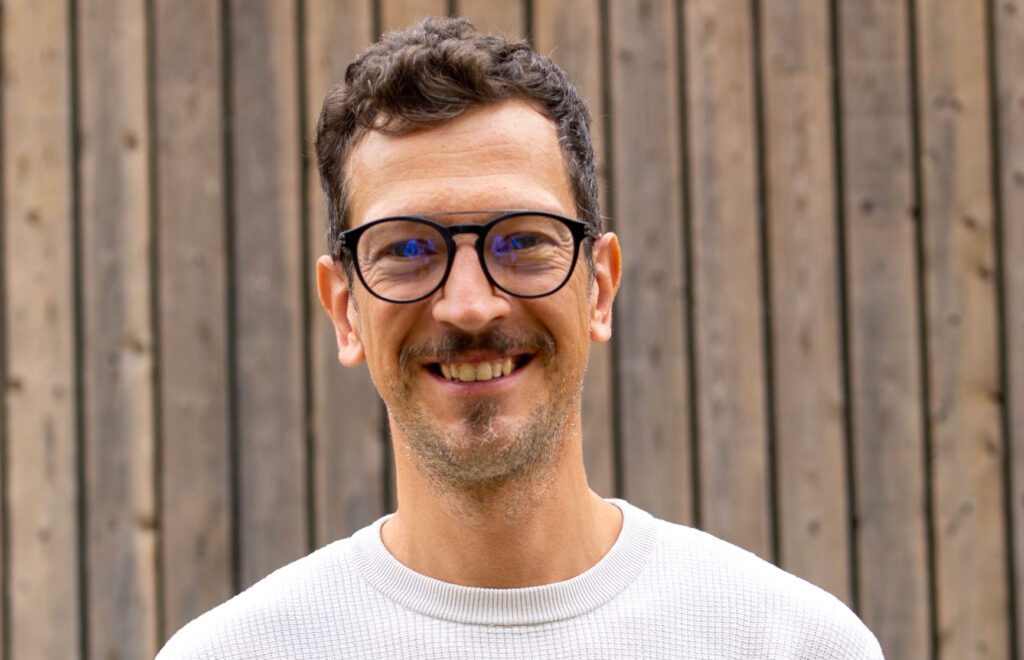Peter Matjašič is originally from Slovenia and now based in Barcelona, where his career has spanned activism, youth work, and the defense of civil liberties across Europe. In this conversation, he talks about his path into journalism, why grassroots reporting matters, and how his role at Report for the World is helping build stronger, more sustainable newsrooms around the globe.
Can you tell us a bit about your background—where you’re from and what brought you into journalism in the first place?
I’m originally from Slovenia but living for over 12 years in Barcelona now. My background is rooted in activism, youth work, and the defense of civil liberties across Europe. I studied International Relations at the University of Ljubljana and was drawn to journalism due to a commitment to collective action and the greater good, as reflected in my extensive work supporting social justice and democracy. I see public interest journalism as a cornerstone of an informed society and a democratic tool that helps keep power accountable.
What inspired you to join Report for the World, and what does our mission mean to you personally?
I’m motivated by missions that empower citizen voices and drive social change. The mission of Report for the World aligns with my values of amplifying underrepresented stories and supporting communities in need. Personally, such work resonates with my belief in civic empowerment and the importance of lifting diverse perspectives. I want to help build sustainable newsrooms that are based on principles of equity, internal democracy and mutual accountability whilst having a clear public interest focus and connection with their community.
What specific skills or networks are you bringing to RFW, and how do you intend to leverage them to support under-covered reporting?
I bring a collaborative leadership style, experience in running cross-border and multicultural teams, and extensive networks built through roles at organizations like the Open Society Foundations, the European Youth Forum, and Investigate Europe. I’m adept at strategy, partnerships, and grant-making, and can leverage these skills to empower teams to consolidate their organisational development and facilitate impactful, under-covered reporting.
Which of RFW’s core values—like community engagement, sustainability, or local storytelling—resonates most with you, and why?
Of RFW’s values, community engagement and local storytelling are especially important to me, reflecting my commitment to bringing people together for a greater good and ensuring diverse voices are heard. I value working inclusively with local teams to address gaps in representation and impact. I also believe sustainability is a key value and approach, particularly when it comes to creating lasting organisational structures and processes that can help bring about and sustain the change we need in society and/or resist in times of regression of civic space and acquired freedoms.
How do you envision your role evolving here, both in terms of your own growth and in advancing the program’s impact?
I see my current role of Network & Development Lead as evolving through ongoing collaboration, adaptation, and strategic vision: from expanding the RFW network and community to supporting the wider mission of meaningful, independent journalism. I’m committed to learning from colleagues and partners and applying my experience to whatever furthers the program’s impact.
What excites you most about working in journalism today, especially within the context of underserved communities or global challenges?
What excites me most is the ability of journalism to transcend borders, tackle global and local challenges, and strengthen democratic participation, especially for underserved communities. Leading diverse, remote teams that work for social change is both motivating and rewarding for me. I believe there is so much good work out there that is not connected or known enough and I’d like to help create those connections and foster those collaborations.
Can you share a powerful or memorable moment from your journalism career so far—something that reminds you why you do this work?
As often one of the few non-journalists in the room, a powerful moment for me is found in guiding teams of journalists from different countries to work together for a shared mission, overcoming cultural and logistical barriers, a testament to my collaborative approach and trust in collective action. I think it is important to use your life experience to help spark new ways of looking at things in an interdisciplinary manner and encourage people to dare think differently.
Looking ahead, what kinds of stories or issues—such as climate, corruption, education, or human rights—are you most eager to help bring to light through RFW?
I’m particularly eager to focus on stories about human rights, democracy, and civic empowerment, which align with my values and professional background. Issues like climate, corruption, and social justice are also priorities, and I aim to support coverage that catalyzes change. When it comes to content though, for me it is important to trust the local newsroom and the journalist to identify what they find the most relevant topic to cover.
How do you think our regional partners (like AIJC, Factum, ARIJ, etc.) can amplify RFW’s mission, and what role will you play in that collaboration?
I see regional partners as amplifiers of RFW’s mission by providing local insight, strengthening networks, and enhancing collective impact. They are at the heart of our networking and community approach together with the journalists we support. My role will be to facilitate collaboration, foster communication, and empower partners through sharing resources and aligning strategies.
What message would you like to share with our community and supporters about why grassroots journalism through Report for the World matters—and how they can stay engaged?
My message to the community is that grassroots journalism is essential for a healthy democracy and informed public, especially in challenging times. I encourage readers to continue using critical thinking and a healthy dose of skepticism when consuming news, and those already turned supporters to stay engaged by promoting, supporting, and sharing the work of local and independent journalists.
Connect with Peter: Linkedin

